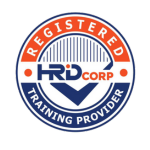- Tongle Editor
- March 10, 2025
Ever had that sinking feeling before a big presentation, convinced that any minute now, someone will “figure out” that you don’t really belong? That your success was just luck, good timing, or people overestimating your abilities? Welcome to impostor syndrome—where self-doubt thrives, no matter how skilled or experienced you actually are.
It’s not just you. Nearly 70% of professionals experience impostor syndrome at some point in their careers, from fresh graduates to top executives. The irony? Some of the most talented, hardworking people are the ones who feel it most.
While self-doubt can be a normal part of growth, impostor syndrome takes it to another level, convincing us that we are undeserving of our own achievements. It creates an exhausting cycle of overworking, second-guessing, and burnout—and it’s not just an individual struggle. Workplaces that fail to address impostor syndrome risk losing talented employees who don’t believe they’re good enough, even when they are.
The Exhausting Cycle of Self-Doubt
For Raj, a software developer, impostor syndrome wasn’t about failing—it was about being found out. Even though his code was solid, every time he submitted a project, he braced for criticism. Any day now, they’ll realize I have no idea what I’m doing, he’d tell himself.
The Workplace Pressure Cooker
To compensate, he worked late, double- and triple-checking everything. He barely took breaks, convinced that slowing down would somehow expose him. His manager praised his work, but he dismissed it as politeness. They’re just being nice, he thought. They don’t actually think I’m that good.
It wasn’t until a coworker confided in him—“Man, I feel like I have no idea what I’m doing half the time”—that Raj realized something: He wasn’t the only one feeling this way.
And that’s the kicker—impostor syndrome thrives in silence. It convinces you that you’re the only one faking it, when in reality, the most capable people often feel this way.
1. The Double Shift: Balancing Work and Home
While impostor syndrome is personal, the workplace can either fuel it or help ease it. In high-pressure environments, where success is measured by productivity, self-doubt can quickly spiral into overwork, stress, and burnout.
Jessica, a junior marketing specialist, remembers feeling paralyzed in meetings. She had ideas—good ones—but she kept quiet, convinced they weren’t worth saying. Meanwhile, her colleagues spoke up confidently, even when she knew she had better insights.
“I thought I wasn’t smart enough to be there,” she admits. “But then I started noticing that the people who spoke up weren’t necessarily smarter—they were just less afraid to be wrong.”
Her turning point came when her manager asked for ideas and she finally shared one. To her surprise, he loved it. That moment shifted something—she realized her voice mattered.
Unfortunately, not all workplaces nurture that kind of confidence. Many professionals hesitate to take on challenges because they don’t feel ready, even when they’re more than qualified. And when self-doubt takes hold, it’s easy to play it safe—to overwork, avoid risks, and miss out on growth opportunities.
Breaking the Cycle
The truth is, there’s no magical moment when you suddenly “feel ready.” Confidence isn’t about never doubting yourself—it’s about moving forward despite the doubt.
Maya, the project lead who once felt like a fraud, started keeping a small journal. Every time she received positive feedback or finished a difficult task, she wrote it down. When self-doubt crept in, she had proof—on paper—that she was capable.
Raj, the developer, started opening up to colleagues. He was shocked to learn that even his senior coworkers had felt the same way at some point. That realization helped him trust himself more and stress less.
Jessica made a rule—if she had an idea in a meeting, she had to share at least one. Over time, speaking up became easier, and she started owning her contributions.
These might sound like small shifts, but they add up. And when workplaces actively support employees—through mentorship, open conversations, and mental wellness initiatives—impostor syndrome loses its grip.
The Workplace’s Role in Confidence-Building
While personal strategies help, workplaces must also create an environment that supports growth rather than self-doubt. When expectations are unclear, employees are left second-guessing. When feedback is inconsistent, people assume the worst. When there’s no open dialogue about impostor syndrome, employees suffer in silence.
This is where Employee Assistance Programs (EAPs) and workplace wellness initiatives can make a difference. Providing mental health resources and clear feedback channels can help employees feel supported rather than scrutinized.
No one should have to prove their worth over and over just to feel like they belong. The best workplaces don’t just demand confidence—they help build it.
A Healthier Work Environment Starts with Small Changes
If impostor syndrome is holding you back, you’re not alone—and you’re not the problem. Workplaces that foster openness, clarity, and mental well-being help employees thrive, not just survive.
- If you’re struggling, start the conversation. Talk to HR about workplace support, mentorship, and mental wellness initiatives.
- If you’re a leader, ask yourself-does your workplace encourage confidence or fuel self-doubt? Small changes, like clear expectations and constructive feedback, can make a big difference.
- If you don’t know where to start, Tongle can help. Our EAP programs and workplace wellness initiatives provide tailored support to help employees overcome self-doubt and build confidence.
Let’s create a culture where employees feel valued, supported, and empowered—together. Contact Tongle today to explore workplace well-being solutions that make a real impact.





